News archive 2017
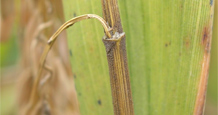
Using ‘fire to fight fire’ to combat disease, including cancer, could make it worse, tests show
A treatment billed as a potential breakthrough in the fight against disease, including cancer, could back-fire and make the disease fitter and more damaging, new research has found.

Dry January: Ketamine trial could help free Devon man from alcoholism
Just two months ago, Marcus was drinking up to seven bottles of wine a night and regularly blacking out, sometimes finding himself in police custody.
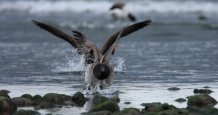
Climate change has mixed effects on migratory geese
Climate change improves the breeding chances of migratory geese in the Arctic – but puts mother geese at more risk of death, according to a new study.
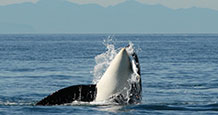
Mother-daughter conflict between killer whales can explain the evolution of menopause
An international research team have found that mother-daughter conflict can explain why killer whales are one of only three known species of mammal, including humans, to go through the menopause.
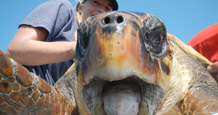
Exeter research helps protect loggerhead turtles
A long-running research and conservation project is helping save an at-risk species of turtle.

App trains people not to reach for chocolate and alcohol
Psychologists devise brain-training game to help you lose weight.

Intensive animal production may boost flu pandemic threat
Mass livestock production is driving molecular changes in diseases that could lead to human pandemics, according to an expert from the University of Exeter.
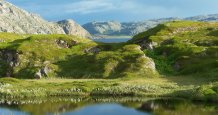
Research shows driving factors behind changes between local and global carbon cycles
Research has provided a fascinating insight in the quest to determine whether temperature or water availability is the most influential factor in determining the success of global, land-based carbon sinks.

Why hospital antibiotic management strategies do little to curb resistance
With an alarming growth in antibiotic resistance and doctors increasingly having to resort to last-chance antibiotics to save patients, is there a better way for hospitals to manage antibiotic treatment regimens?
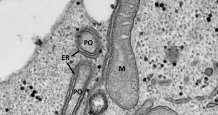
Breakthrough by Exeter cell biologists
We all need contacts – how organelles hug in cells
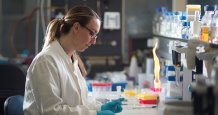
Mammal testing could be cut by moth larvae
The number of mammals used in animal testing could be cut dramatically and replaced with moth larvae.

Role of terrestrial biosphere in counteracting climate change may have been underestimated
Research suggests the capacity of the terrestrial biosphere to absorb carbon dioxide may have been underestimated in past calculations due to certain land-use changes not being fully taken into account.

Antibiotics can boost bacterial reproduction
The growth of bacteria can be stimulated by antibiotics, scientists at the University of Exeter have discovered.
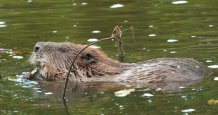
Rare footage of mother and baby beavers in the River Otter
Public invited to take part in a national survey on whether beavers should be reintroduced permanently into Britain
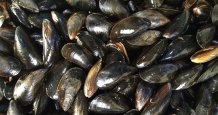
Climate change scientists should think more about sex
Urgent need to check how males and females respond differently to ocean acidification.

Low level of oxygen in Earth’s middle ages delayed evolution for two billion years
A low level of atmospheric oxygen in Earth’s middle ages held back evolution for two billion years, raising fresh questions about the origins of life on this planet.
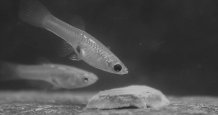
Predator threat boosts friendships among guppies
Danger from predators causes animals to form stronger friendships, according to new research.

LED lighting could have major impact on wildlife
LED street lighting can be tailored to reduce its impacts on the environment, according to new research by the University of Exeter.
_feat_218x115.jpg)
Increasing water table in agricultural peatland could cut UK greenhouse gas emissions
Increasing the water table could help to slow down global warming, boost crop yields and preserve peat soils, according to a new study.

Top of the league sports personalities to give students tips for success
The man in charge of the record-breaking British Paralympics team is one of a host of sports experts set to offer top tips to Exeter students.
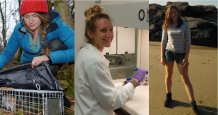
Penryn research excellence illustrated by competition success
Penryn PhD students are celebrating after sweeping the board at a high-profile research competition.
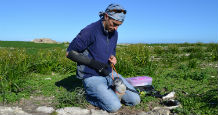
Climate change and fishing create ‘trap’ for penguins
Endangered penguins are foraging for food in the wrong places due to fishing and climate change, research led by the University of Exeter and the University of Cape Town has revealed.
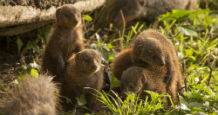
Tough early life makes wild animals live longer
Growing up in tough conditions can make wild animals live longer, new research suggests.

App combines latest research to help users curb food cravings
Experts are seeking volunteers to test a research-based app that aims to help users curb cravings for unhealthy foods and lose weight.
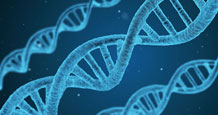
Gene editing could help tackle cancer and inherited diseases
Gene editing techniques developed in the last five years could help in the battle against cancer and inherited diseases.
__feat_218x115.jpg)
Basking sharks seek out winter sun
The winter habits of Britain’s basking sharks have been revealed for the first time.
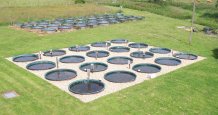
Warming ponds could accelerate climate change
Rising temperatures could accelerate climate change by reducing the amount of carbon dioxide stored in ponds and increasing the methane they release, new research shows.
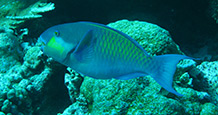
Impacts of mass coral die-off on Indian Ocean reefs revealed
Warming seawaters threaten the stability of tropical coral reefs, with potentially devastating implications for many reef species and the human communities that reefs support.

People with cystic fibrosis ‘should get exercise plans’
People with cystic fibrosis could benefit from being prescribed personalised exercise plans by healthcare professionals, according to experts at the University of Exeter.
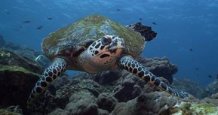
Exeter helps protect Myanmar marine life
A new plan to protect Myanmar’s diverse marine life has been announced.
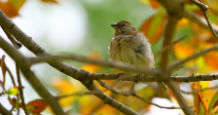
Watching birds near your home is good for your mental health
People living in neighbourhoods with more birds, shrubs and trees are less likely to suffer from depression, anxiety and stress, according to research.
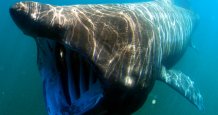
Planned protection area would help basking sharks
A proposed Marine Protected Area (MPA) off Scotland’s west coast would help basking sharks, researchers say.
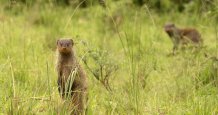
Banded mongooses go to war over sex and territory
Gang warfare is not unique to humans – banded mongooses do it too.
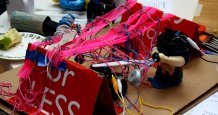
‘Tanglebots’ to encourage teamwork in young people with autism
Robots made from recycled toys will be used to boost communication and teamwork among young people with autism and their families.
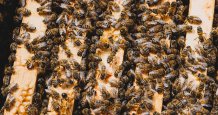
Scientists reveal core genes involved in honey bee immunity
An international team of researchers has identified a core set of genes involved in the responses of honey bees to multiple diseases caused by viruses and parasites.
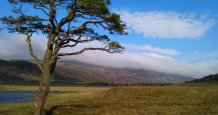
Caledonian forests threatened by climatic change
Efforts to conserve the remaining fragments of the great Forest of Caledon in Scotland may be doomed to fail unless a new strategy is rapidly adopted, new research suggests.

Virtual reality training for ‘safety-critical’ jobs
New virtual reality training could help prevent accidents in “safety-critical” industries like the NHS, aviation, the military and nuclear power.
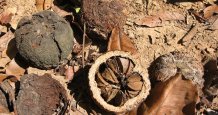
Ancient peoples shaped Amazon rainforest
The Amazon rainforest was shaped by ancient people who lived there, new research reveals.

Blueberry concentrate improves brain function in older people
Drinking concentrated blueberry juice improves brain function in older people, according to research by the University of Exeter.

Exeter subjects ranked amongst the global best
Both science and humanities subjects at the University of Exeter have been recognised as being amongst the very best in the world, according to an influential global league table.

Celebrating 10 years of European Research Council funding
The University of Exeter will commemorate the 10th anniversary of the European Research Council (ERC) with a celebratory public event at the Streatham Campus.
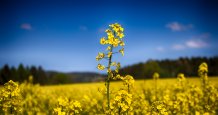
Breeding oilseed rape varieties for pollinator-friendly traits
Amounts and sugar content of nectar vary between commercial varieties of oilseed rape (OSR) produced with different breeding systems, when tested in the glasshouse.

Devon’s beavers win top BBC Countryfile award
The remarkable story of Devon’s wild beavers goes on with the announcement that the Westcountry rodents have now won a top national award.
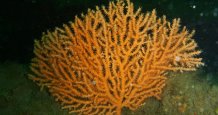
Soft coral species exhibit strikingly different patterns of connectivity around the British Isles
The evolution of land animals has been shaped by barriers such as oceans and mountains which have divided them and sent them down different genetic paths.

Extensive ice cap once covered sub-antarctic island of South Georgia
A new study reveals the sub-antarctic island of South Georgia – famous for its wildlife – was covered by a massive ice cap during the last ice age.

Tropical rainstorms and a wobbly rope bridge in the cloudy treetops at the Eden Project’s new Weather Maker
Visitors to the Eden Project can now trek across an aerial rope bridge, shelter from tropical rain and travel through clouds thanks to the opening of a thrilling new rainforest walkway.

Students pedal for nature at free outdoor cinema event on Cornish beach
Award-winning conservation films will be shown at a new bicycle-powered cinema on a beach in Cornwall, thanks to two University of Exeter students.
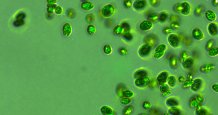
The foundation of aquatic life can rapidly adapt to global warming, new research suggests
Important microscopic creatures which produce half of the oxygen in the atmosphere can rapidly adapt to global warming, new research suggests.

Dementia: The right to rehabilitation
Rehabilitation is as important for people with dementia as it is for people with physical disabilities, according to a leading dementia expert.
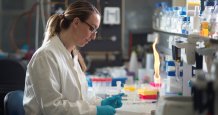
Exeter Bioscientist on exclusive list of top 50 entrepreneurs honoured at House of Commons
A Biosciences expert from the University of Exeter is celebrating after being honoured as one of an exclusive group of leading entrepreneurs, at a special ceremony at the House of Commons.

Explore the fascinating creatures on Cornwall’s shores with free guided rockpooling session
Families can identify the fascinating creatures found on Cornwall’s shores with the help of a University of Exeter animal ecology expert as part of the Falmouth Spring Festival.
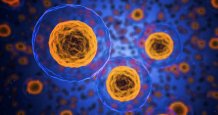
Weather forecasting technology used to predict where proteins anchor within human cells
Met Office technology used to study climate change is being used by scientists to predict the sorting and location of proteins in cells of the human body.

Cabinet Minister visits University - and gives students tips on how to become an MP
Cabinet Minister David Lidington visited the University of Exeter today and met academics who have given evidence to Parliament and students studying politics and history.
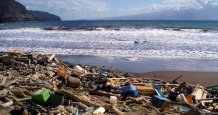
Beach debris to be transformed into art as part of Falmouth Spring Festival
Families can make art from litter found in the sea and on beaches as part of a free event at Falmouth Art Gallery.

Birds to help unravel the inner working of nature’s most complex societies
Prestigious Human Frontiers Science Programme grant awarded to international research team led by University of Exeter
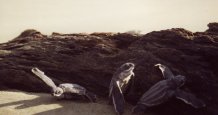
Logging threatens breeding turtles
Debris from logging in tropical forests is threatening the survival of hatchling leatherback turtles and the success of mothers at one of the world’s most important nesting sites in Colombia.
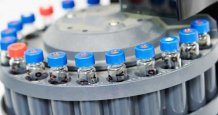
Ketamine shows positive results for treating severe depression
A new paper sets out principles for responsibly testing innovative treatments for severe depression, based on treating more than 100 patients with approximately 1,000 infusions of ketamine over six years.

Computer game helps scientists understand animal camouflage
Computer games have helped scientists understand animal camouflage and colour vision.
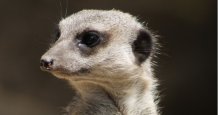
Captive meerkats at risk of stress
Small groups of meerkats – like those often seen in zoos – are at greater risk of chronic stress.

Want to stay mentally healthy in older age? Stimulate your brain in early life
Stimulating the brain by taking on leadership roles at work or staying on in education help people stay mentally healthy in later life, according to new research.
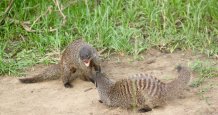
Banded mongooses target family members for eviction
Banded mongooses target close female relatives when violently ejecting members from their social groups, University of Exeter scientists have found.
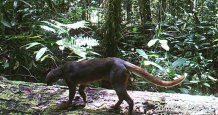
New population of endangered cats found in Borneo
A new population of an endangered and elusive cat species has been found in Borneo.
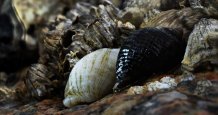
Light pollution has serious impact on coastal wildlife, research shows
Scientists have recognised for some years that light pollution is a growing phenomenon that impacts on the behaviour and success of many animals.
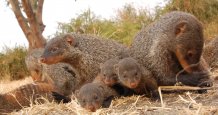
Mongoose pups conceal identity to survive
Young mongooses may conceal their identity – even from their own parents – to survive.
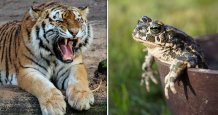
Volunteers needed to help save ‘less popular’ species
Which species would you save from extinction: Elephants or newts? Toads or tigers?
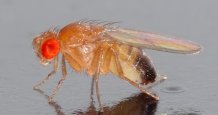
Insecticide-resistant flies ‘rubbish’ at courting females
Insecticide resistance sounds like a superpower for the average male fruit fly – but there’s a catch.

Exeter Geography department gets gender equality award
The University of Exeter’s Geography department has earned an Athena SWAN silver award for gender equality.
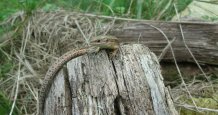
Global warming kills gut bacteria in lizards
Climate change could threaten reptiles by reducing the number of bacteria living in their guts, new research suggests.

‘BEEHAVE’ project up for award
A project which helps protect bees has been nominated for an innovation award.

Brexit negotiations crucial for future UK energy supplies and nuclear safeguards
Energy policy offers the UK and EU an important opportunity to develop new models of partnership and common ground imperative to the UK’s future, according to a new Chatham House paper.

Jurassic drop in ocean oxygen lasted a million years
Dramatic drops in oceanic oxygen, which cause mass extinctions of sea life, come to a natural end – but it takes about a million years.

Geographers to walk the route of new power line
A group of geographers will walk along the route of proposed new electricity pylons to discover how local people are coming to terms with the impact of the construction on the landscape.
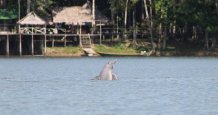
Exeter researchers help protect Peru’s river dolphins
Peru's river dolphins will get new protection thanks to a plan developed with help from the University of Exeter.

University to host open mental health event
Helping people recover from extreme stress or psychological trauma will be the focus of a public event at the University of Exeter on Saturday (20 May).
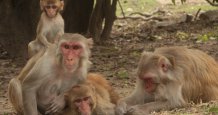
Social ties help animals live longer
Large families and strong social ties help animals live longer, new research suggests.

Top psychologist wins award
A psychologist who specialises in topics including leadership and motivation has won an award from the British Psychological Society.

Computer game could help children choose healthy food
A simple brain-training game could help children choose healthy snacks instead of chocolate and sweets, according to a new study.
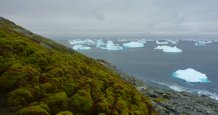
Antarctica ‘greening’ due to climate change
Plant life on Antarctica is growing rapidly due to climate change, scientists have found.
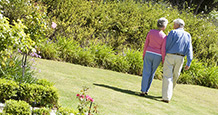
Five ways people can act on dementia
Five ways people can act on dementia, backed by research

Global climate change story map wins award
A web app created to share the stories from an online climate change course which attracted people from more than 160 countries has won an award.

Planting trees ‘not viable alternative’ to cutting emissions
Growing plants to capture CO2 is not a viable way to curb climate change, a new study shows.
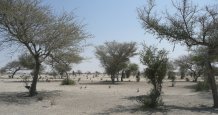
Summer rainfall in vulnerable African region can be predicted
Summer rainfall in one of the world’s most drought-prone regions can now be predicted months or years in advance, climate scientists at the Met Office and the University of Exeter say.

Women ‘damned either way’ on maternity leave
Women are judged negatively if they choose to take maternity leave – and if they don’t – new research suggests.

Public confused by climate change messages
Experts, charities, the media and government confuse the public by speaking “different languages” on climate change.

Exeter hosts IPCC meeting on the 1.5°C Global Warming target
Some of the world’s leading climate scientists are gathering in Exeter for a high-profile event to examine the impact, significance and implications of global warming, in relation to the Paris Agreement 2015.
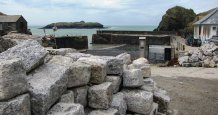
‘Let some heritage sites go’, says academic
Some heritage sites cannot be preserved and should be allowed to decay, a new book argues.

Motor-boat noise makes fish bad parents, leading to the death of their babies
Noise from motorboats is making fish become bad parents, and reducing the chance of their young surviving, research led by marine experts at the University of Exeter has shown.
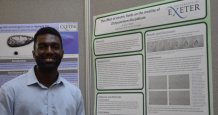
Natural Sciences students showcase diverse research
Natural Sciences students at the University of Exeter have presented a wide range of research at a special event.
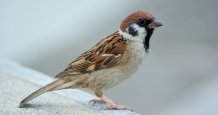
Late-nesting birds and bees face habitat threat
Bird and bumblebee species that nest late in the year are suffering more from the destruction of habitats, new research suggests.

Cornwall cats needed for behaviour study
Where does your cat go when it leaves the house? What does it eat?
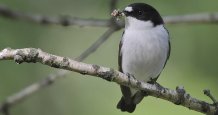
Climate change risk for animals living in prime conditions
Animals living in areas where conditions are ideal for their species have less chance of evolving to cope with climate change, new research suggests.

‘BEEHAVE’ project wins innovation award
A project which helps protect bees has won the 2017 BBSRC Innovator of the Year award for Social Impact.

£2 million for Exeter Centre of Excellence in dementia care research
Alzheimer’s Society has announced today that it has committed almost £2million to the University of Exeter.

Hiding true self harms career and sense of belonging
Hiding your true self at work can damage your career and reduce your sense of belonging in the workplace, a new study suggests.
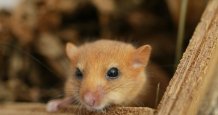
Drowsy dormice doze into decline
Britain’s population of hazel dormice has declined by more than 70%, new research shows.

Top scientist to talk climate change at Glastonbury
Glastonbury festivalgoers can look forward to a heady mix of Ed Sheeran, Foo Fighters, Katy Perry – and a lesson on climate change from a top scientist.
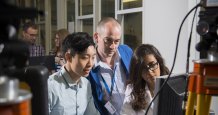
Exeter’s teaching excellence officially recognised as ‘gold standard’
The University of Exeter’s commitment to providing world-class teaching has been recognised with the award of a “Gold” rating in the first national Teaching Excellence Framework (TEF) assessment.

'Who Made My Clothes?' - Free online Fashion Revolution course starts 26th June
Fashion Revolution, the global movement calling for greater transparency, sustainability and ethics in the fashion industry, is launching its first free online course next Monday, 26th June 2017.
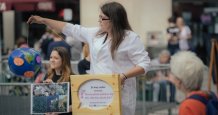
Soapbox Science returns to Exeter
Ever wondered what happens in your brain when you eat chocolate? Or whether Nemo’s dad should’ve been less worried about finding his son and more concerned about ocean acidification?

Prize for ‘outstanding’ University of Exeter ecologist
A University of Exeter ecologist has won a prestigious prize for his outstanding achievements.
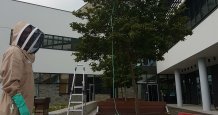
Bees move in at university after swarming on to campus
A swarm of bees that turned up on a university campus has been allowed to stay.
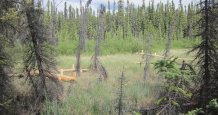
Monitoring changes in wetland extent can help predict the rate of climate change
Monitoring changes to the amount of wetlands in regions where permafrost is thawing should be at the forefront of efforts to predict future rates of climate change, new research shows.

Ape expert joins War for the Planet of the Apes Q&A
A real-life primate expert joined stars of new film War for the Planet of the Apes for a Q&A with journalists.
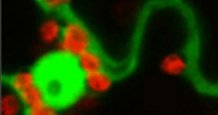
Hydrogen peroxide protects plants against sun damage
Plants use hydrogen peroxide (H2O2) to control how their cells react to varying levels of light, new research shows.
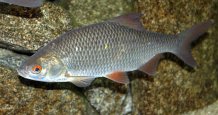
A fifth of male fish in UK rivers now ‘trans-gender’ due to chemicals in human waste
Anti-depressants flushed down the loo reduce natural shyness in fish.
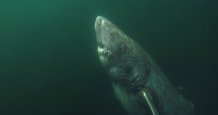
Sharks could hold genetic secret to long life
Greenland sharks, the longest living vertebrate on earth, which are found off the coast of Britain, could hold the secret to long life, geneticists mapping their DNA have predicted.
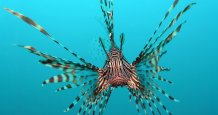
From pet to ‘perfect invader’ - the spread of lionfish
A predatory fish species thought to have reached new oceans after being released from aquariums is the “perfect invader”, an expert has said.

Child’s portions of fish and chips on menu as fish shrink
Sea-bass and sardines to replace cod because of climate change.

Help tackle climate change in Exeter
Researchers will discuss how climate change could affect Exeter at an event on Thursday 13 July.

Football boosts bone development in boys
Playing football can improve bone development in adolescent boys, new research shows.
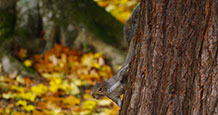
Squirrels have long memory for problem solving
Squirrels can remember problem-solving techniques for long periods and can apply them to new situations, researchers have discovered.
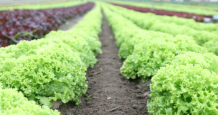
‘No solid evidence’ for biopesticide-diarrhoea link
A report commissioned by EU food regulators wrongly linked a highly effective biopesticide with diarrhoea in humans, an expert says.
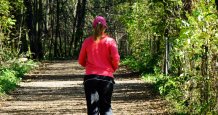
One minute of running per day associated with better bone health in women
A single minute of exercise each day is linked to better bone health in women, new research shows.

Sea temperature changes contributing to droughts
Fluctuations in sea surface temperature are a factor in causing persistent droughts, research suggests.
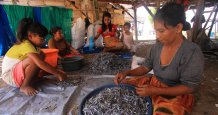
Supporting coastal communities in Southeast Asia
A group of UK researchers have been awarded funding to help support coastal communities in East and South East Asia that depend on healthy and diverse marine ecosystems.

Alcohol boosts recall of earlier learning
Drinking alcohol improves memory for information learned before the drinking episode began, new research suggests.

Moth larvae testing firm wins grant
A spinout company, which provides moth larvae for use in scientific testing – reducing the need for tests on mice and rats – has won a £100,000 grant.

Moth larvae testing firm wins grant
A spinout company, which provides moth larvae for use in scientific testing – reducing the need for tests on mice and rats – has won a £100,000 grant.
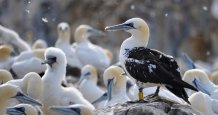
Grown-up gannets find favourite fishing grounds
Like humans, some birds can spend years learning and exploring before developing more settled habits.

Dog walking could be key to ensuring activity in later life
A new study has shown that regularly walking a dog boosts levels of physical activity in older people, especially during the winter.
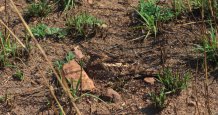
How camouflaged birds decide where to blend in
Animals that rely on camouflage can choose the best places to conceal themselves based on their individual appearance, new research shows.
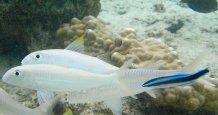
Boat noise disrupts fish co-operation
Noise from motorboats changes the behaviour of cleaner fish and the species they help.

Children to explore natural world at Science in the Square
Budding nature-lovers will be taken on a voyage of discovery to find out how animals have evolved to deal with friends and foe, at a special interactive event.

How to keep your brain sharp in older age
New research from the Global Council on Brain Health (GCBH) has revealed which mentally engaging activities best keep the brain sharp.
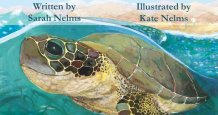
New children’s books mix storytelling and science
Birds and turtles are common enough on the pages of children’s books – but what about bacteria or psyllids (otherwise known as jumping plant lice)?

Commuters could help cut Exeter congestion
City commuters could play a pivotal role in helping curb traffic congestion in and around Exeter, thanks to a pioneering initiative.

‘Inefficient’ sailing fleet keeps oyster fishery alive
Oyster stocks in a Cornish fishery are sustained thanks to “inefficient” traditional fishing methods, new research suggests.

Smart doll uses ‘espionage’ powers for education
A controversial “smart doll” has been reprogrammed to enlighten adults rather than potentially spying on children.

Telling people not to ‘down’ drinks could make them drink more
Campaigns designed to stop young people “bolting” drinks can make them more likely to do it, new research suggests.

3,000 turn out for Science in the Square
More than 3,000 people joined scientists from the University of Exeter for a fun-filled day in Falmouth last week.

Virus reprogrammes ocean plankton
A virus which infects plankton can reprogramme cells and change the way they absorb nutrients, new research shows.

Otters learn by copying each other
Otters can learn how to solve puzzles by watching and copying each other, new research shows.
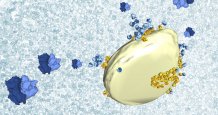
Breakthrough in understanding mitochondria
Scientists have made a breakthrough in understanding how mitochondria – the “powerhouses” of human cells – are made.
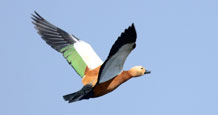
High-flying ducks cross Himalayas
A high-flying duck species reaches altitudes of up to 6,800 metres (22,000 feet) to cross the Himalayas, new research shows.

Community support for protection of the Great Barrier Reef
Who cares about the Great Barrier Reef? Many people, according to a paper published in the journal Proceedings of the National Academy of Sciences.
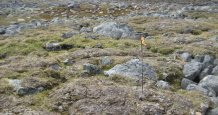
Cold region ‘tipping point’ now inevitable
The decline of cold regions called periglacial zones is now inevitable due to climate change, researchers say.
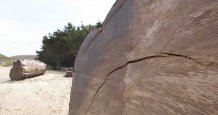
Ancient tree reveals cause of spike in Arctic temperature
A tree preserved in a New Zealand peat swamp for 30,000 years has revealed new information about the last ice age.

Glass buoys to speak up for fishing communities
Sea shanties and fishermen’s voices feature in a new art exhibit designed to give a voice to marginalised fishing communities.

£2.85m for first PhD programme to tackle antimicrobial resistance
Exeter is one of 16 universities involved in a new PhD programme to tackle antimicrobial resistance.

University and Exeter Chiefs to offer rugby PhD
The University of Exeter has teamed up with Exeter Chiefs rugby club to fund a PhD study into the injury risks facing young rugby players.

Mine waste water project seeks gold in International Genetically Engineered Machine Competition (iGEM)
This November, a team of undergraduate students will travel to the USA in their campaign to take home a fourth gold medal in the iGEM competition.

Fish have complex personalities, research shows
Tiny fish called Trinidadian guppies have individual “personalities”, new research shows.

Plastic pollution discovered on ice floes near the North Pole
Melting ice is releasing frozen plastic into the Arctic Ocean, as plastic waste flows towards the Pole.

Monkey island research station battered by Hurricane Maria
Researchers are working to restore a Puerto Rican research station and its nearby community following damage caused by Hurricane Maria.

Student cycles 500 miles to return to university
As many students used planes, trains and automobiles to return to university, one travelled hundreds of miles by pedal power.
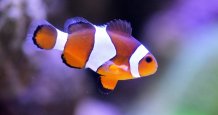
Conservationists should harness ‘Hollywood effect’ to help wildlife
Researchers say conservation scientists could work with filmmakers to harness the “Hollywood effect”.

Head injury sufferers needed for study
Men who have suffered head injuries are being recruited for a new scientific study.
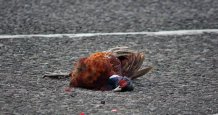
Pheasant roadkill peaks in autumn and late winter
Chickens’ motives for crossing the road are often questioned – but pheasants should probably avoid it altogether, new research suggests.

‘Breaking 2’: Exeter scientists take the lead in Nike’s marathon mission
Exeter scientists and alumni spearheaded the science behind Nike’s moonshot to achieve the first sub two-hour marathon, ‘Breaking 2.’
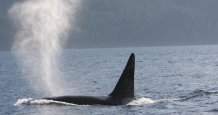
Weak social ties a killer for male whales
Male killer whales are more likely to die if they are not at the centre of their social group, new research suggests.

Tales and imagery of life with dementia captured on Exeter allotment
People whose lives have been affected by dementia have worked with well-known professional artists to create insightful images and poems that capture some of their experiences, to form a new book.

Exeter evolutionary genomics expert delivers Sir Julian Huxley Lecture 2017
A leading expert in evolutionary genomics will deliver a high-profile lecture at the prestigious Linnean Society of London on Thursday, November 2 2017.

Crime-scene technique used to track turtles
Scientists have used satellite tracking and a crime-scene technique to discover an important feeding ground for green turtles in the Mediterranean.
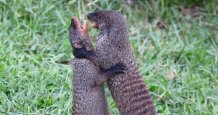
Female mongooses help their pups by driving out rivals
Mongoose mothers boost their pups’ survival chances by evicting rival females from their social groups, new research shows.

Climate change impacts already locked in – but the worst can still be avoided
Some impacts of global warming – such as sea level rise and coastal flooding – are already locked in and unavoidable, according to a major research project.

Building empathy between planners and migrants for sustainable cities
Researchers will engage new migrant populations and planners in Bangladesh’s second city to build human security into planning processes.

New CO2 device for unmanned ocean vessels
Carbon dioxide in remote parts of the world’s oceans will be measured by a new instrument being developed by scientists.

Lighting revolution may increase light pollution
A study of pictures of Earth by night has revealed that artificial light is growing brighter and more extensive every year.

Gender equality award for university department
A University of Exeter department has won an Athena SWAN Bronze Award, recognising its commitment to advancing the careers of women in science.

Students rally support for climate change initiatives
Students are calling on their peers and the wider public to protect the environment by cutting down on single-use plastics and other waste.

Scientist joins MP for week in Westminster
A top scientist is swapping labs for lobbies as he spends a week in Westminster.

Exeter and Cranbrook to pilot new health drive
Exeter and the East Devon new town of Cranbrook are among 12 areas selected to work on a ground-breaking new approach to tackle inactivity in communities, Sport England has announced.

Mine waste water student project secures gold in international competition
A team of Exeter students are celebrating after winning gold at a prestigious worldwide synthetic biology competition.
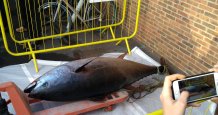
Tuna dissected by university scientists
A tuna accidentally caught off Devon has been dissected by scientists at the University of Exeter.
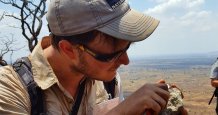
Boost for green research at Exeter
Sustainable seafood and electric cars are among the eco-friendly industries that will be the focus of new research at the University of Exeter.

Does the Father Christmas myth harm children?
When do children stop believing in Father Christmas? Did you feel distressed by the revelation that Santa isn’t real? Were you angry you were lied to, when you found out? Was Christmas different after that? Did the magic disappear?
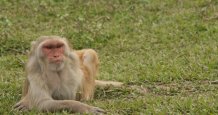
Some monkeys prone to isolation
Some individual animals are prone to social isolation, new research suggests.

Human societies evolve along similar paths
Societies ranging from ancient Rome and the Inca empire to modern Britain and China have evolved along similar paths, a huge new study shows.

Sport and Health Sciences Networking Evening, November 2017
On Thursday 23rd November, Sport and Health Science held a speed networking evening in X-Keys, St Luke’s.
